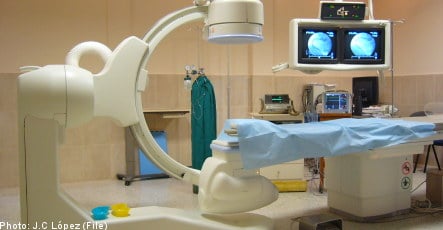The Swedish government recently allocated 2.2 million kronor ($300,000) to develop a communication platform with which to launch Sweden as a world class healthcare nation, according to a report in the newspaper Svenska Dagbladet (SvD).
“We have been working to establish Sweden as an environmentally-friendly country for several years now. The thinking is that we will now do the same thing with healthcare,” Anders Hallersjö of the Swedish Trade Council told the newspaper.
Swedish healthcare providers plan to exploit opportunities provided by the roughly 50 countries worldwide that have opened their healthcare sectors for international competition.
The export of healthcare services can include anything from direct investment, in the form of the ownership and/or management of hospitals and clinics in other countries, to consultancy services – including the import of patients for care.
Swedish firms such as Capio and Ambea are among those that already operate in several European countries, the newspaper writes. Publicly-owned firms are also among those vying for business.
Stockholm Care is one such company which exports healthcare services on behalf of its owner – the Stockholm county health authority.
In the first half of 2009 Stockholm Care accepted 233 patients from overseas and turned over a total of 52 million kronor, according to SvD.
Stockholm Care CEO Birgitta Thellman Beck explained that more patients are needed within specialized care in order to retain the high levels of expertise among medical personnel in Sweden.
“Swedish patients come first, but there are not sufficient numbers.”
Anders Hallersjö underlined that interest for Swedish consultants and expertise from overseas care providers is significant and could have positive knock on effects for manufacturers of medical equipment in Sweden.
“We want to match up the hardware with the software. If you ask me in five years I hope that we can demonstrate an increase of export within all areas.”



 Please whitelist us to continue reading.
Please whitelist us to continue reading.
Member comments